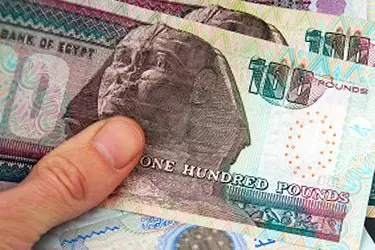PHOTO
The Egyptian pound is expected to trade at 21 against the dollar by the end of 2024, which would take the ratio of the public debt to GDP to nearly 100 percent, according to Capital Economics.
“While we do not think Egypt is facing the same debt strains as some other emerging markets, a weaker currency and tightening global financial conditions, do pose a risk,” Capital Economics said in a briefing released on Thursday.
The London-based economic research institution expects the Egyptian pound to endure a 25 percent fall by the end of 2024, if all other variables remain unchanged.
On March 21, the Central Bank of Egypt bank devalued the currency from 15.7 pounds to the dollar, where it had remained mostly steady for nearly 18 months. Since then, the Egyptian pound has lost nearly 16 percent of its value, trading at an average of 18.3/$
The move was prompted by Egypt’s weakening external position amid the ongoing Russia-Ukraine war.
Capital outflows coupled with reduced tourism revenues and an inflated import bill have recently weighed on the country’s foreign reserves.
Egypt’s foreign reserves had dropped from $40.99 billion in February to $37.082 billion in March. Against this backdrop, Egypt’s sovereign dollar bond spreads rose by over 50 basis points and yields have gone over ten percent, according to Capital Economics.
“In the meantime, investors appear to have also grown wary of the impact of the weaker currency on Egypt’s FX government debt, which is equal to around 24% of GDP,” Capital Economics said.
On Monday, the Central Bank of Egypt announced that the external debt had risen to $145.5 billion in the second quarter of the country’s 2021-2022 fiscal year (which begins on July 1) compared to 137.4 billion in the first quarter.
(Writing by Noha El Hennawy; editing by Seban Scaria seban.scaria@lseg.com)





















